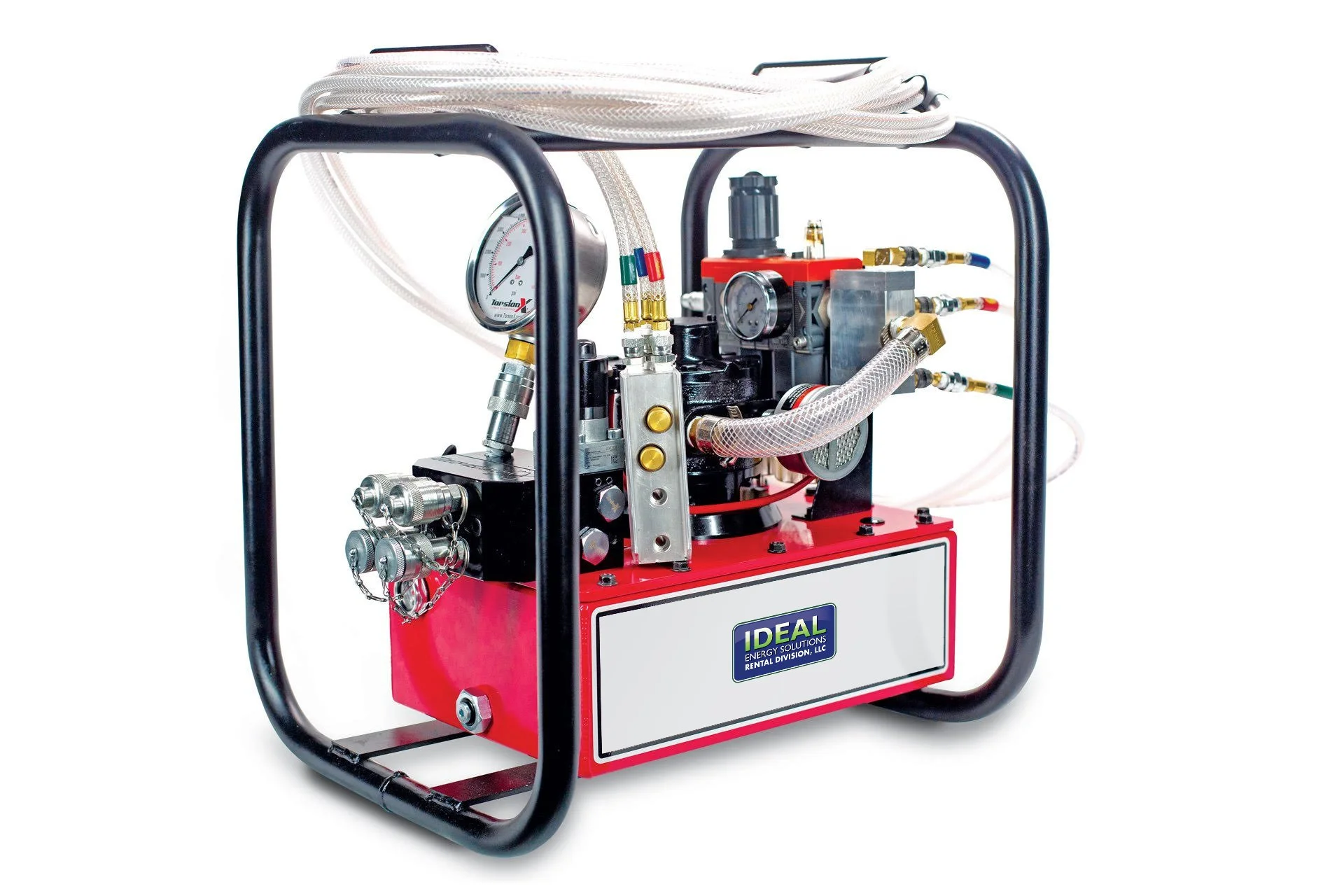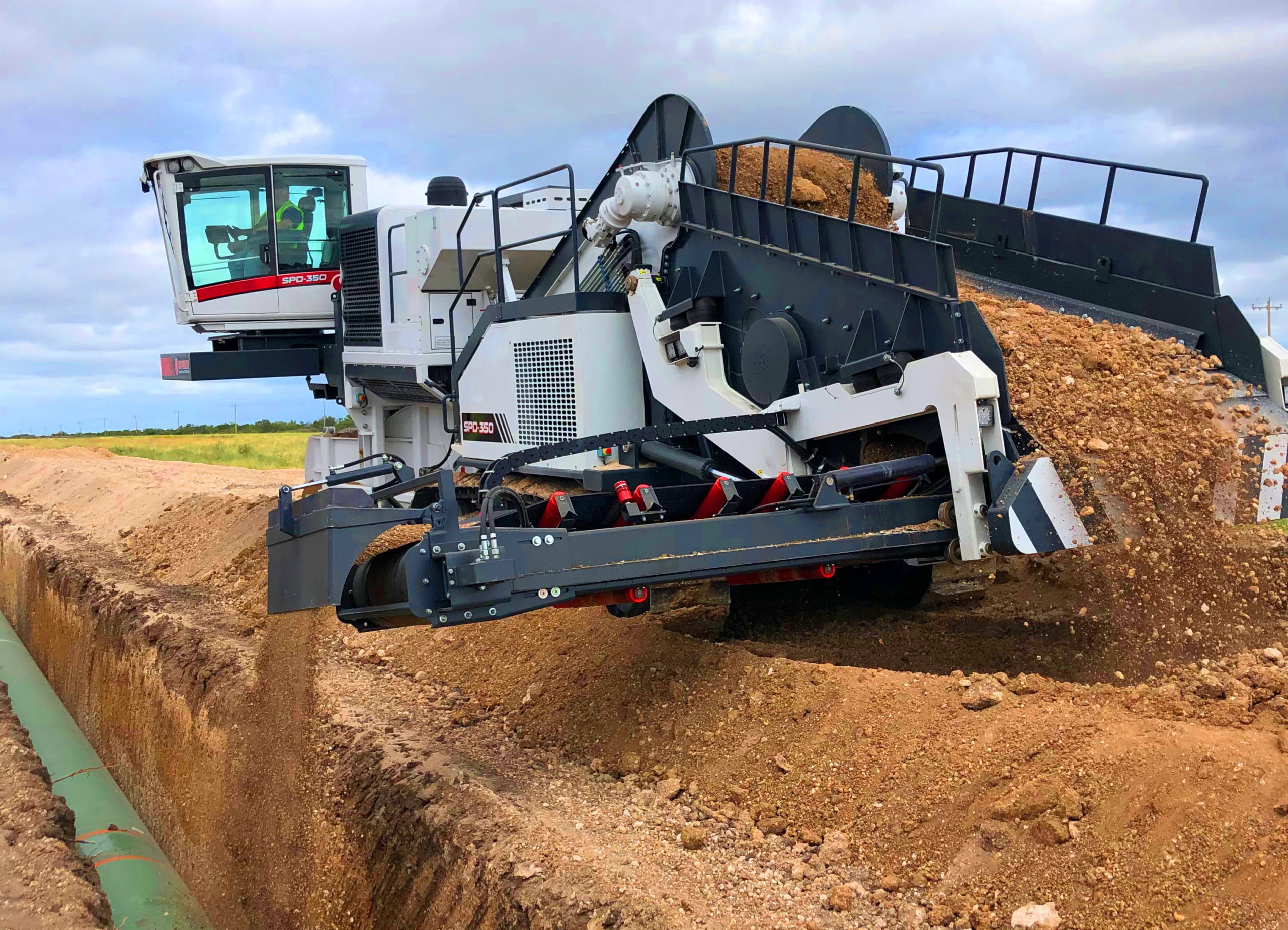Superior rentals squeeze tools: when to use them
A Comprehensive Overview to the Numerous Kinds of Oil Field Equipment and Pipeline Equipment Available
The oil and gas market relies heavily on specific equipment for reliable removal and transport. Various kinds of equipment, from piercing rigs to storage tanks, play important roles in this complex process. Each tool serves unique features that add to total operational success. Comprehending these parts is essential for any person entailed in the sector. As the industry develops, so too do the technologies that sustain it. What advancements are on the perspective?

Drilling Rigs: The Foundation of Oil Expedition
Drilling rigs serve as the essential machinery in the domain name of oil exploration, making it possible for business to gain access to hydrocarbon books hidden deep underneath the Planet's surface area. These rigs come in numerous kinds, including land rigs, offshore rigs, and mobile systems, each developed to run in specific atmospheres. Outfitted with advanced innovation, drilling rigs can penetrate geological developments with accuracy, guaranteeing effective resource extraction. The structural stability and operational capacities of these rigs are essential, as they have to stand up to severe problems and substantial stress. The choice of an exploration rig impacts the general job cost and timeline, making it a vital consideration for oil firms looking for to maximize their expedition efforts and take full advantage of efficiency in their operations.
Pumps: Essential for Liquid Motion
In the oil extraction process, the duty of pumps is considerable, helping with the activity of liquids throughout various phases of production. Pumps are essential for transferring unrefined oil, water, and other liquids from below ground tanks to the surface and after that with pipes to refineries. They come in numerous types, including centrifugal, positive displacement, and completely submersible pumps, each offering certain purposes based upon the fluid qualities and operational needs. Centrifugal pumps are generally utilized for their performance in high-flow applications, while positive variation pumps excel in dealing with thick fluids. The option of pump impacts overall performance, operational safety and security, and upkeep prices. Proper option and maintenance of pumps are vital for maximizing manufacturing and minimizing downtime in oil area operations.
Shutoffs: Managing Circulation and Pressure

Shutoffs play a vital function in handling the circulation and pressure of liquids within oil areas and pipelines. Different kinds of valves offer distinct applications, each designed to satisfy specific functions basic for effective operation - Superior Oilfield Rentals oilfield. Recognizing the features and usages of these valves is crucial for enhancing system efficiency and security
Sorts of Valves
Essential components in oil field procedures, valves play a critical role in regulating the flow and pressure of fluids within pipes and equipment. Numerous sorts of valves are used to fulfill the diverse needs of oil and gas manufacturing. Common kinds consist of entrance valves, which offer a straight-line flow and marginal stress decline; globe valves, understood for their strangling capabilities; and round shutoffs, acknowledged for their fast on/off control. Furthermore, check shutoffs prevent backflow, while butterfly valves offer a lightweight option for managing circulation. Each valve type is designed with particular products and arrangements to withstand the extreme problems typically found in oil areas, ensuring dependability and performance in operations. Comprehending these types is crucial for reliable system monitoring.
Valve Applications and Features
While various kinds of valves offer distinct purposes, their main applications rotate around controlling circulation and stress within oil and gas systems. Shutoffs such as gateway, world, and round valves control liquid activity, making certain peak performance and security. Gateway valves are typically made use of for on/off control, giving marginal circulation resistance. Globe valves, on the other hand, deal precise flow policy, making them suitable for throttling applications. Round valves are preferred for their fast operation and tight securing abilities. Additionally, stress safety valve are critical for protecting against system overpressure, guarding devices stability. Overall, the proper selection and application of valves enhance operational efficiency, making certain the reputable transport of oil and gas via pipelines and processing facilities.
Compressors: Enhancing Gas Transport
Compressors play an essential duty in the effective transport of all-natural gas, ensuring that it relocates smoothly via pipelines over cross countries. These gadgets increase the pressure of all-natural gas, allowing it to get over friction and altitude adjustments within the pipeline system. Furthermore, compressors facilitate the harmonizing of supply and demand, fitting changes in usage and production rates. Numerous kinds of compressors are used in the industry, including centrifugal, reciprocating, and rotary screw compressors, each offering unique benefits based upon the operational requirements. Normal upkeep of these compressors is necessary to take full advantage of efficiency and reduce downtime, inevitably adding to a reputable gas transport network. Their critical feature highlights the relevance of compressors in the general oil and gas infrastructure.
Storage Tanks: Safe and Efficient Liquid Administration
Effective transportation of gas counts on numerous supporting systems, among which is the proper monitoring of tank. These storage tanks play a vital role in securely containing liquids, guaranteeing that operational performance is preserved while decreasing ecological dangers. Created from durable materials, they are developed to stand up to high stress and corrosive aspects. Effectively sized and tactically located, storage space containers assist in the smooth flow of gas and various other liquids, avoiding bottlenecks in supply chains. Routine maintenance and tracking are vital to discover leakages or architectural issues, advertising safety and conformity with regulative criteria. Ultimately, the efficient administration of tank is essential for the total stability and dependability of the oil and gas market's fluid handling systems.
Pipeline Equipments: Facilities for Transportation
Pipeline systems function as the foundation of the oil and gas sector, facilitating the reliable transport of hydrocarbons over vast ranges. These systems contain various elements, consisting of pipes, valves, pumps, and compressors, all thoroughly developed to ensure smooth flow. The products utilized in pipeline building and construction, typically steel or high-density polyethylene, are picked for toughness and resistance to rust. Pipeline networks can span throughout land and water, attaching manufacturing websites to refineries and distribution. In addition, advanced modern technology makes it possible for real-time monitoring of flow prices and stress levels, enhancing operational performance. The tactical placement of these pipelines reduces environmental influence while making best use of source access, consequently playing a necessary role in meeting power needs around the world.
Safety And Security Equipment: Guaranteeing Employee and Environmental Protection
The operation of pipeline systems, while vital for power transport, also provides substantial safety challenges for workers and the environment. Safety and security devices plays a considerable duty in mitigating these risks. Personal safety equipment (PPE) such as headgears, gloves, and non-slip footwear safeguards employees from physical threats. Additionally, gas discovery systems monitor for leaks, making sure that damaging materials do not position a threat to employees or the surrounding ecological community. Emergency situation closure systems are important for swiftly halting procedures throughout a situation, stopping possible catastrophes. Spill control products, consisting of absorbents and barriers, are essential for reducing environmental effect. On the whole, spending in all-encompassing safety and security tools is crucial for keeping operational honesty and safeguarding both workers and the atmosphere in the oil and gas sector.

Regularly Asked Questions
Just how Do I Pick the Right Oil Field Equipment for My Job?
Choosing the ideal oil field devices includes reviewing task specifications, budget plan restrictions, and operational needs. Take into consideration aspects such as devices dependability, compatibility with existing systems, and the supplier's online reputation to guarantee peak efficiency and safety.
What Are the Upkeep Needs for Oil Field Equipment?
Maintenance demands for oil area tools consist of normal evaluations, lubrication, and timely fixings. Operators ought to additionally abide by manufacturer guidelines, display performance metrics, and assurance compliance with safety and security policies to improve longevity and performance.

Exactly How Can I Make Certain Compliance With Environmental Regulations?
To ensure conformity with environmental policies, companies must carry out normal audits, execute ideal practices, invest in training, keep appropriate documentation, and stay updated on legislation (Superior Rentals reviews). Cooperation with environmental agencies can also enhance adherence to policies
What Is the Typical Lifespan of Pipeline Equipment?
The ordinary life-span of pipeline devices usually ranges from 20 to 50 years, depending on variables such as material top quality, environmental problems, and maintenance practices. Regular assessments can significantly affect long life and operational effectiveness.
Exactly how Do I Securely Carry Oil Field Equipment to Remote Locations?
Transferring oil field devices to remote areas requires careful planning, including route evaluation, safeguarding licenses, making use of appropriate cars, and making certain safety procedures are complied with. Proper training and interaction click here among teams are necessary for effective transportation.